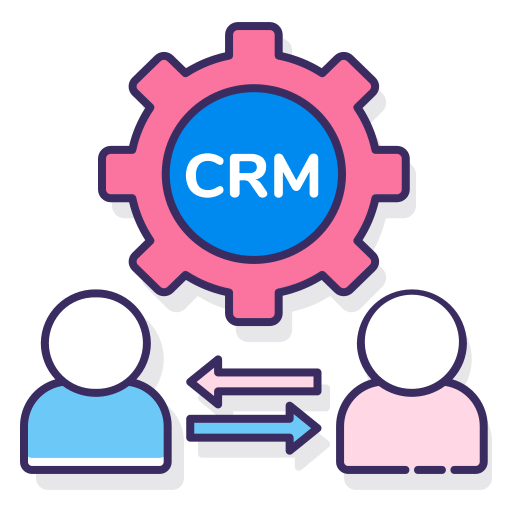Digital marketing is a lucrative and cost-effective form of marketing. Thanks to a majority of the world’s audience having access to the internet, digital marketing enables marketers to engage with their target audiences. It helps users with personalized experiences to target them based on their preferences and build awareness and reputation of the brand. In this article we will learn about the top digital marketing skills in 2024.
1. Mobile Marketing
Mobile marketing is a form of digital marketing that involves advertising products/services through channels like smartphones, tablets, and other mobile devices via websites, SMS, social media, in-app notifications, etc. Some of the critical areas to be focused on for successful mobile marketing are:
- Focus on the Customer and Personalized Marketing
You need to give users a personalized experience and personalized ads based on their location and purchase history. With this, the users feel like they’re directly interacting with the brand; and hence their loyalty to the brand also dramatically increases.
- Identifying Trends With Data
With the help of data, different trends can be easily identified. With this, customer profiles can be created, along with predictive and behavioral analysis that can help with understanding users, and how to grab their attention better.
- Testing and Mobile Analytics
Testing helps you understand what works and what doesn’t in your campaigns. It gives you insights and learnings that you can use to ensure the success of future marketing campaigns. By focusing on metrics like engagement ratio, cost per install, average revenue per user, and so on, you get a clear understanding of what’s going well and what isn’t. It helps provide insights that would drive future campaigns and experiments.
2. Customer Relationship Management

CRM (Customer Relationship Management) refers to a collection of strategies, tools, and technologies to manage your relationship and interaction with potential or existing customers. It also enables you to develop new customer relationships or retain them. It also helps with sales, marketing, and service management. It may also store data like purchase history, personal information, and so on. Some of the key areas to be focused on customer relationship management are:
Thanks to data analyzed from different metrics, you can perform optimizations that can be incorporated into upcoming campaigns. Although your requirements may vary, some of the most popular metrics you can focus on are customer churn, NPS(Net Promoter Score), customer retention rate, customer churn, first contact resolution rate, etc.
- Understand How Different Tools Work
When it comes to CRMs, there’s a huge number of options available. From Salesforce, Hubspot CRM, Zoho CRM to Microsoft Dynamics, there is plenty of choices. It’s essential to be experienced in at least some popular CRMs considering how each of them has its nuances, advantages, and disadvantages.
3. Designing

Designing involves the process of advertising products and services in a visually appealing manner. Designing consists of a combination of high-quality creative and copy. A basic understanding of designing concepts can be greatly helpful in scenarios where you can provide insights for the kinds of creatives you can create for an advertisement.
Some of the key areas to be focused on for proper designing are:
- Understanding of Design Philosophies
You need a basic understanding of adding attention-grabbing, relevant images, and other design philosophies to create high-quality designs.
- Work With Tools Like Adobe Photoshop and After Effects
You need to understand the working of tools like Adobe Photoshop and AfterEffects to churn out good quality creatives. Having even a basic understanding of this software would be greatly useful in the long run.
4. Social Listening
Social listening refers to how a brand can learn about what customers are saying about them and the industry on the internet, by monitoring digital channels. With this, you can track, analyze, and respond to conversations and feedback on the brand’s social media channels. This can improve your relationship with your users, increase their brand loyalty, and convert them into potential customers. Some of the critical areas for social listening are:
- Understanding Different Social Media Platforms
You need to understand how different social media platforms work, how each of these platforms is different from each other, what type of content works best for a particular platform, and so on.
- Experience With Popular Tools
Experience with tools like HubSpot and HootSuite will help you handle issues like PR crises, customer complaints, user-generated content, competitive intelligence, suggestions from users, and much more.
5. Copywriting

Copywriting involves creating promotional texts for brochures, notifications, billboards, emails, and so on. High-quality written content can increase brand awareness and encourage users to perform a particular action like signing up to a website, buying a specific product, and so on. Some of the critical areas of copywriting are:
- Understanding Customers and Competition
Customers can give you vital information that can help you understand your competition. You’ll understand what content your audience enjoys the most, what they dislike, what content gets maximum engagement, and so on. For this, having grammatical skills and excellent writing skills that can be hugely beneficial for you.
6. Email Marketing

Email marketing is a method that uses emails to promote products and services to a highly targeted audience. It can be used to improve brand relationships or ultimately drive them away. Customers can directly interact with personalized emails. This helps them stay updated with new products and services. Next, let’s have a look at the key concepts of email marketing.
- Focusing on Personalization and Automation
Email marketing can be used to keep in touch with your users, to inform them about the latest products/services, and to perform other forms of engagement.
- Complying With Data Privacy Rules
Privacy rules like GDPR specify a large number of restrictions that need to be followed. If these rules aren’t followed, your brand could face huge fines.
- 3. Experimenting With Different Kinds of Content
Your emails can have images, gifs, or videos attached to them. Each of these can impact your customers
- 4. Understanding Popular Tools and Metrics
Having an understanding of popular tools like Mailchimp and Hootsuite can help you become successful at email marketing. These platforms also come with several features like contact segmenting, autoresponders, service and app integration, A/B testing, and much more.

Social media marketing enables marketers to drive traffic to their website, build their brand, increase sales, and achieve their marketing goals by creating and sharing content through social media platforms like text, images, videos, and other forms of content that can drive engagement. You can also perform paid advertising on these platforms. Some key concepts of social media marketing, includes:
- Understanding Different Social Media Platforms
Each of these social media platforms has its nuances, audiences, advantages, and disadvantages. An understanding of these platforms can help you choose a platform based on your requirements.
Social media platforms like YouTube enable you to monetize your videos. Events, affiliate marketing, and influencer marketing are some other options that can be used.
Experience with marketing tools like Buffer and Buzz sumo can help you track and analyze competitors’ content to determine what works best. You need to know your user base, understand what content they enjoy, and then optimize it.
8. PPC (Pay-Per-Click)

Pay-per-click lets marketers advertise their content by spending a certain amount of content each time their ads are clicked. One of the most successful types of PPC is search engine marketing. Let’s have a look at the key concepts of PPC.
One of the most popular platforms in the market, Google ads, enables marketers to advertise to a broad audience. You need to understand how the platform works, its different features and functionalities to be used more efficiently.
Metrics like cost-per-click, clickthrough rates, quality scores, etc. need to be understood to make optimal and well-informed decisions.
9. Search Engine Optimization

SEO enables marketers to improve the quality and quantity of the traffic coming to your website by making it more visible to users who have searched for a particular keyword. SEO improves unpaid results and doesn’t count as traffic obtained from paid ads. Let’s have a look at the key concepts of SEO.
Understanding the technical concepts of SEO like sitemaps, server-side settings, rewrites, etc. enables marketers to perform server level and page level optimizations. This ensures users find the website’s content and help generate traffic and improve conversions.
SEO involves a combination of external and internal link building. One builds links with credible websites, and the other optimizes links within the website and social media platforms.
Placing objects and information appropriately on the website will make it easy to use and navigate.
- 4. Google Analytics & Webmaster
Google Analytics will help with tracking and reporting website traffic. Google Webmaster will help track your website’s search performance with the help of the google search console and additional resources.
10. Data Analysis

Data analytics involves the combination of collecting and organizing data, to draw conclusions that can be incorporated into upcoming campaigns. Here are some key concepts/tools of Data analytics.
Google Analytics is a popular tool that enables marketers to analyze their website. It records information like the number of visitors coming to the site, the demographics of the visiting audience, their interests, etc. This information can be used to drive future marketing campaigns.
Data visualization enables data to be translated into a chart, graph, or other visual components. Understanding data visualization would help with understanding data quickly and cleanly. It enables brands to identify upcoming trends and to respond to them quickly. The brand’s story can also be shared with others, thanks to being able to create a narrative with graphics and diagrams. And finally, a clear understanding of data structures fundamentals and basic statistics can significantly ease the process of data analysis.
11. Communication
Effective communication remains at the core of digital marketing. Marketers need to convey their messages clearly and persuasively across various digital channels, including social media, email, and website content.
12. Content Creation
High-quality and engaging content is crucial for attracting and retaining customers. Marketers should have the skills to create diverse content types, from blog posts and videos to infographics and podcasts.
13. Creativity
Creativity is what sets successful digital marketers apart. Creativity helps in developing unique and attention-grabbing campaigns that resonate with the target audience.
14. Marketing Communications
Building and maintaining relationships with customers through various digital channels is key. Marketers should excel in crafting personalized and relevant marketing messages.
15. New Product Development
It is vital to understand the product development process and how it aligns with marketing strategies. Marketers should be involved in shaping products that meet customer needs.
16. Competitor Analysis
Keeping an eye on the competition helps in staying ahead. Marketers need to assess competitors’ strategies and adapt their own approaches accordingly.
17. Automation
With the increasing complexity of digital marketing, automation tools are becoming indispensable. Marketers should be skilled in using marketing automation software to streamline workflows and enhance efficiency.
18. Problem Solving
Challenges are inevitable in digital marketing. Being able to identify issues, troubleshoot problems, and implement effective solutions is a valuable skill.
19. Content Marketing
Content marketing remains a cornerstone of digital strategy. Marketers should know how to create, distribute, and promote content that provides value and drives engagement.
20. Influencer and Affiliate Marketing
Collaborating with influencers and affiliates can expand a brand’s reach and credibility. Marketers should understand how to identify, partner with, and manage relationships with influencers and affiliates.
21. E-commerce Marketing
E-commerce continues to grow rapidly. Marketers should be well-versed in e-commerce strategies, including optimizing product listings, managing online storefronts, and implementing effective payment and shipping solutions.
Conclusion
Now that we’ve covered the top digital marketing skills you need to know in 2024, you can take the next step by taking up Simplilearn’s Post Graduate Digital Marketing Program and make a splash in the field of Digital Marketing. This course teaches you about popular tools such as Crazy Egg, Feng-GUI, SEMrush, Buffer, and MailChimp. You can also prepare yourself for OCMA, Google Ads, Facebook, HootSuite, and HubSpot exams.
FAQs
1. Why is digital marketing a good skill?
Digital marketing is a valuable skill because it’s essential for promoting businesses and products in today’s digital age. It offers excellent career opportunities due to its versatility and the increasing importance of online presence for companies.
2. Is SEO a good career?
Yes, SEO (Search Engine Optimization) can be a rewarding career. With the growing significance of online visibility, there’s a consistent demand for SEO professionals who can improve websites’ search engine rankings.
3. Which digital marketing skills are in the highest demand?
Skills in data analysis, SEO, content marketing, and marketing automation are consistently in high demand in the digital marketing field.
4. Is digital marketing an IT job?
Digital marketing is not an IT job; it’s a distinct field within marketing. While digital marketers may use technology, their primary focus is on marketing strategies and campaigns in the digital realm.
5. How to start SEO?
To start with SEO, you can learn the fundamentals of on-page and off-page optimization, keyword research, and content optimization. Many online courses and resources are available to help you get started.
6. What are some common mistakes in digital marketing and how can I avoid them?
Common mistakes include neglecting data analysis, not adapting to algorithm changes, and not understanding the target audience. You can avoid these by staying updated, analyzing data regularly, and focusing on audience needs.
7. What is the full form of SMM?
SMM stands for Social Media Marketing, which involves promoting products or services through social media platforms.
8. What resources are available for learning digital marketing skills?
You can learn digital marketing through online courses, tutorials, and resources on platforms like Coursera, LinkedIn Learning, HubSpot Academy, and Google Digital Garage. Additionally, there are many blogs, forums, and books dedicated to digital marketing topics.


